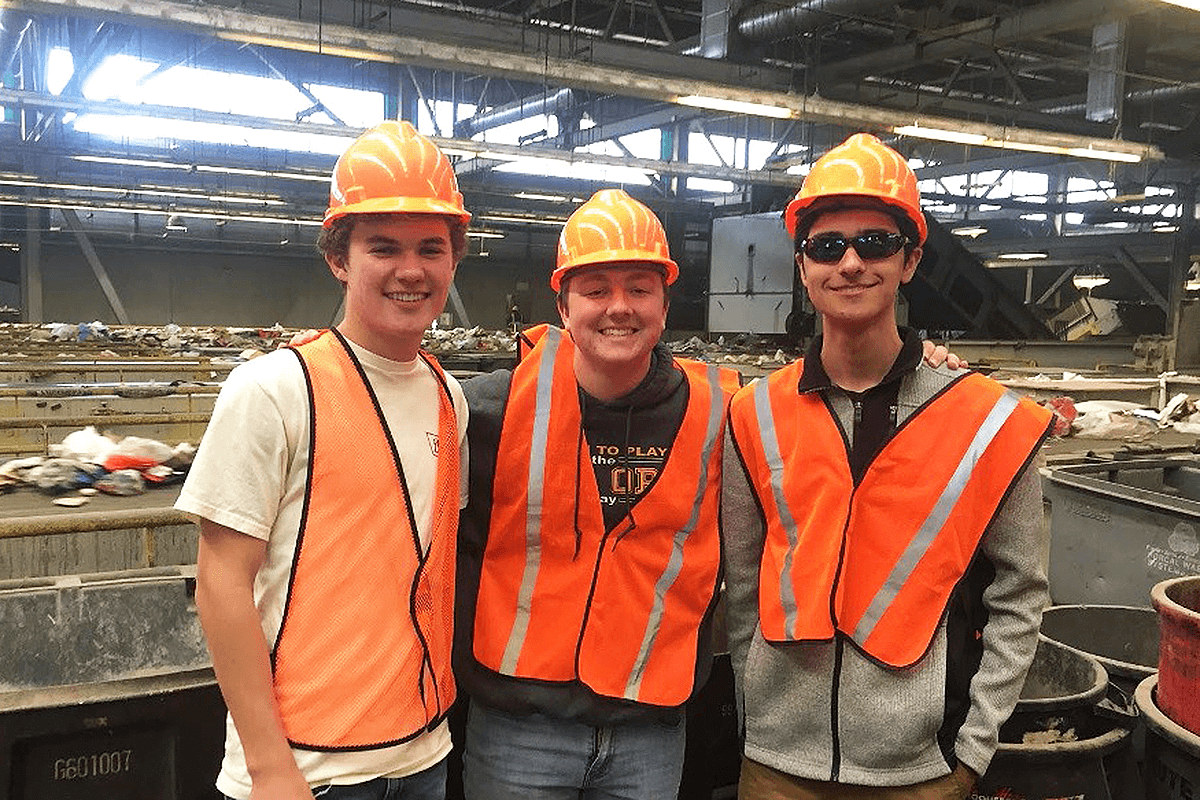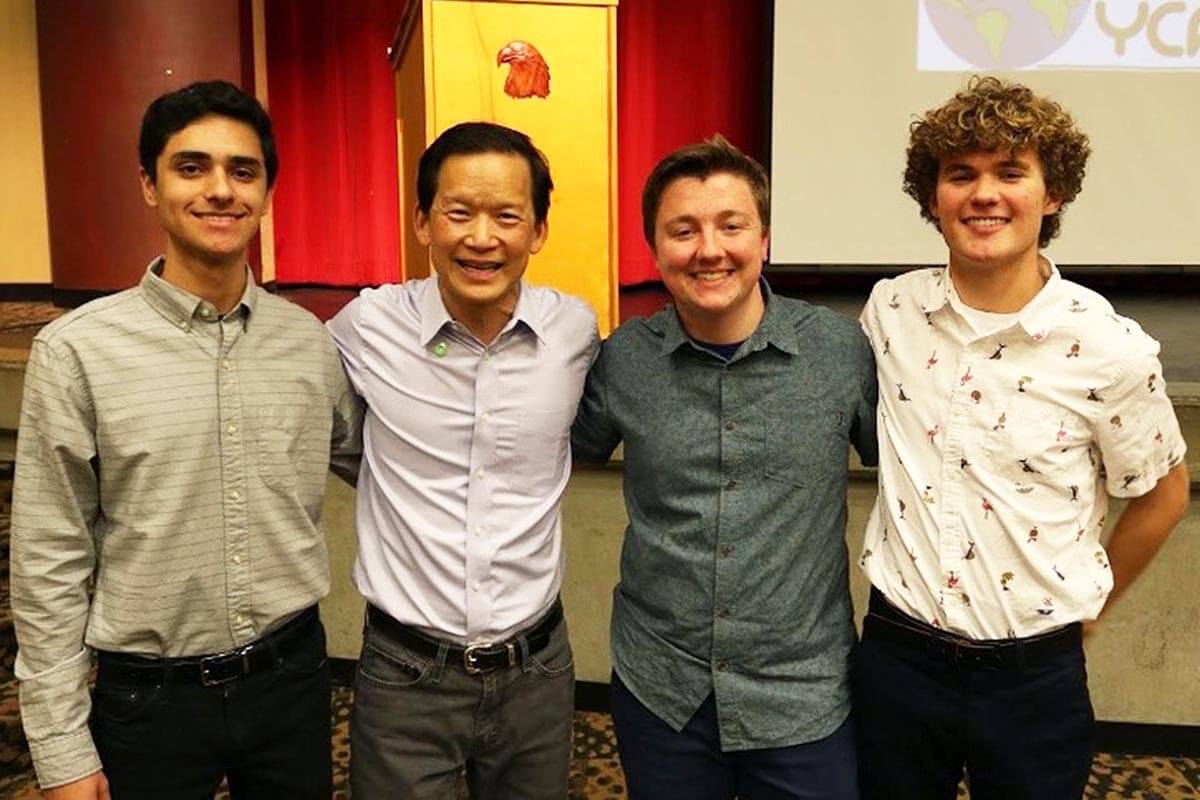This article is part of our Youth Voices series. At Ten Strands we believe that young people have valuable perspectives and a critical role in shaping our society and our world. We recognize their power to drive dialogue and create positive change, and are committed to providing a platform which amplifies their contributions.
Last fall, the world saw the power of youth activism in the environmental movement. The Fridays for Future movement, led by Swedish environmental activist Greta Thunberg, gained enormous traction and shifted the conversation around climate change for years to come. In 2018, the March for Our Lives movement, founded in the face of tragedy by high school students in Parkland, Florida, made enormous strides to bring the youth voice to policy issues. The 2017 Women’s March in Washington the day after the inauguration of our current president took huge steps toward empowering the next generation of women leaders.

Youth activism is not something new. During the American civil rights movement in the mid-1960s, young freedom fighters across the South changed policy and attitudes regarding racial inequality. In the 60s and 70s, Vietnam War protesters pushed for a more accountable government and called for the American people to contemplate the horrors of war. Similarly, this new wave of youth is demanding change and urging elected officials to take note.
Millennial and Gen Z voters are increasingly becoming a significant voting bloc. In fact, according to the Pew Research Center, these generations will compromise 37 percent of eligible voters during the 2020 elections. In the 2018 midterms, 36 percent of eligible voters under age 29 voted. Youth are claiming a larger share of the voice in politics and are using it with considerable force.
But where does that leave us? While the calls for action intensify, especially in the environmental conservation movement, many youth and adults alike are wondering what they can do to make change. Other than attending a protest or rally, what steps can we take to combat climate change in our schools, workplaces, and communities? In addition, although activism is great, shouldn’t this want for better solutions be instilled in us throughout our lives? For example, couldn’t we use the education system to raise awareness and foster change? There seems to be a gap, and key players need to fill it.
Allow us to introduce ourselves. We are Jack Galloway and Kevin Malaekeh, two cofounders and directors of Youth Climate Action Coalition (YCAC), an environmental nonprofit based in rural Northern California. Our inspiration to take action on climate change stemmed from personal experience. In November 2018, the Camp Fire destroyed the nearby community of Paradise, California, killing over 80 people and displacing thousands. A lot of families in our school and community were affected, whether they lost loved ones or had to house family members for extended periods of time. We had always cared about sustainability and taking action against climate change, but this experience was the tipping point for us. We realized that no one is immune to climate change and that we need to take action now in order to have a better future.

Shortly after the tragic wildfire, we decided to start an environmental club at our school, Del Oro High School in Loomis, California. Our mission was simply to make our school and community more environmentally friendly. We took on many projects, including creating a composting program that saves two tons of carbon emissions per year, installing faucet aerators that save thousands of gallons of water from being wasted, and raising awareness about climate change and various environmental issues. Our community is politically conservative, but they are generally open-minded when it comes to environmental issues. For example, we are currently working with the town council on implementing a citywide food scraps program, and we have gotten nothing but support.
We also try to engage the community as much as possible by hosting events. We recently hosted an event with Wei-Tai Kwok, a leader of the Climate Reality Project, in which he spoke to members of the school and the community about the importance of taking action against climate change. Not only was the audience receptive, they donated over $700 to our environmental club. This shows that it doesn’t matter what your political orientation is as long as you see that, in the long run, taking action against climate change will benefit you directly. That is the key to gaining support, especially in rural, conservative California.

We decided to create our organization, Youth Climate Action Coalition (YCAC), when, as our club continued to make our school and community more environmentally friendly, we realized that we could expand our impact to schools across the country. YCAC’s mission is to provide youth with tools to take action against climate change in their schools and communities. We work with passionate individuals to create personalized climate action plans based on a number of factors, including the current infrastructure of a campus environmental group, the current political climate of the region, and available space. To date we’ve worked with youth at over 100 schools in 22 states and five countries to implement programs that help alleviate environmental problems.
YCAC takes a unique approach to youth activism: we focus on taking actionable steps to make a concrete impact. By implementing climate action plans, students can feel like they are helping fight the climate crisis at the ground level. This is truly a game changer for climate activism. YCAC enables youth to gain experience taking action on climate-related issues and, with their newfound expertise, push for larger scale action. Without a doubt, YCAC can push student activism to new levels, make real progress in limiting greenhouse gas emissions, and address other climate change issues.
YCAC is very excited with the work Ten Strands is doing in the education space. Clearly, we need leaders to encourage climate change education. As such, we are currently working with Ten Strands and former California state legislature member Gary Hart to explore drafting legislation that would implement curriculum regarding climate change in the California education system. By providing students with the facts about climate change early on in their education, we prepare the activists and voters of tomorrow with the necessary skills to make meaningful change.
Find YCAC online at http://ycacyouth.org/ and via instagram at @ycac_youth


